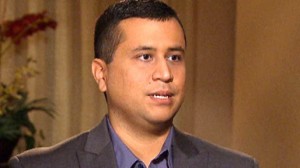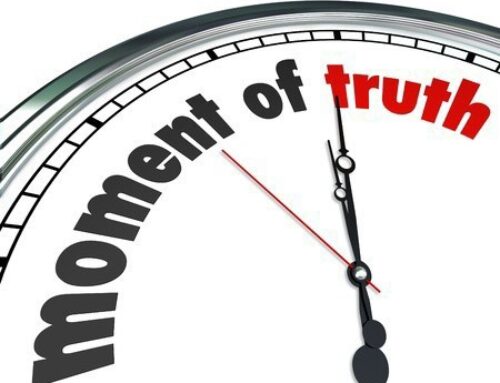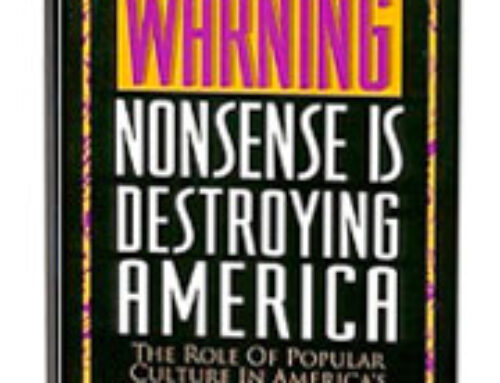 It seems that everyone with a computer or a cell phone is weighing in on the George Zimmerman verdict. The number of themes is quite limited, however. Justice was done, justice was not done; Zimmerman simply defended himself, Zimmerman murdered Trayvon Martin; racism was a factor, racism was not a factor.
It seems that everyone with a computer or a cell phone is weighing in on the George Zimmerman verdict. The number of themes is quite limited, however. Justice was done, justice was not done; Zimmerman simply defended himself, Zimmerman murdered Trayvon Martin; racism was a factor, racism was not a factor.
The focus of this essay is very different and, I hope, more useful. It is on what those of us who were not involved in the case can learn from it.
The main lesson concerns the importance of choosing our words and actions thoughtfully. Some of the choices related to this case were reasonable, others were clearly foolish, and a few were downright irresponsible. Here are the most significant ones, with my evaluations of them.
George Zimmerman’s choices:
Joining the neighborhood watch—reasonable, given that residents had been the targets of crime. Taking his gun with him the night in question—also reasonable for the same reason.
Ignoring the direction to stay in his truck—at best foolhardy and therefore irresponsible.
Shooting Martin while being beaten—reasonable, though tragic. (I make this judgment on the jury’s implicit affirmation that the shooting was an act of self-defense, done out of Zimmerman’s fear he was in danger of grave harm.)
Trayvon Martin’s choices:
Walking through that neighborhood to the store at night—reasonable if he didn’t know the neighborhood had been the scene of break-ins in the past; foolish if he did know and if another store or route was available.
Quarreling with and then assaulting Zimmerman—irresponsible. (He could have chosen to continue walking and perhaps saying over his shoulder, “I’m not bothering anyone, so leave me alone.” Such caution would have been especially appropriate because his neighborhood was not his but Zimmerman’s.)
MSNBC’s choice:
Editing the Zimmerman tape to make it sound that he was suspicious of Martin because Martin was black—irresponsible. (The unedited tape revealed that Zimmerman was not volunteering a description of Martin’s race but merely answering the 911 operator’s question, “Is he black, white, or Hispanic?”)
The New York Times’ Choice:
Referring to George Zimmerman as a “white Hispanic”—irresponsible. (When accused of using that odd term to make it sound that Zimmerman was not a minority, a Times official claimed that they had used the term in other cases, though admittedly rarely. That explanation was lame; anyone working for a newspaper of the Times’ stature should have known that at very least the term tended to increase racial tension.)
President Obama’s Choice:
Saying publicly and soon after the event, “If I had a son, he’d look like Trayvon.” Irresponsible, because the statement associated Martin with the president of the United States, and thus evoked the kind of sympathy accorded an innocent victim long before Martin’s innocence or guilt was established. (Obama’s comment was reminiscent of his 2009 comment in the case of Henry Louis Gates, Jr. At that time, Obama said the police “acted stupidly” in arresting Gates, and then in the next breath admitted he didn’t know all the facts. Both cases reveal a level of carelessness that is astounding in a man who is not only a lawyer but who also taught constitutional law.)
Reverend Al Sharpton’s Choice:
Reportedly saying at a rally in March 2012, after Zimmerman shot Martin: “We cannot allow a legal precedent to be established in this city that tells us it is legal for a man to kill us, tell any story he wants, and walk out with the murder weapon.” Also, at that time, calling not just for an investigation, but for Zimmerman’s arrest—irresponsible in both matters, because the facts of the case had not yet been established.
The Sanford FL City Manager’s Choice:
Firing the Sanford police chief who originally decided there were insufficient grounds to charge Zimmerman in Martin’s death (a decision subsequently validated by the jury)—irresponsible, for caving in to political pressure.
FL State Attorney Angela Corey’s Choices:
Deciding not to use a grand jury in the Zimmerman case—foolish, because that is the usual approach in such cases. Also, irresponsible, because the grand jury’s decision would have provided insight concerning the appropriate charge, if any, to be made against Zimmerman.
Charging Zimmerman with Second Degree Murder, rather than the lesser charge of Manslaughter—at best foolish because as most analysts agree, even without a grand jury, it was clear that Second Degree Murder was an overreach.
Why did all these people make the choices they did? No doubt for same reason the rest of us make our choices, great and small—because we are inclined to place too much trust in our impulses. Rather than considering a variety of responses and choosing the best one, we often just react, saying and doing whatever comes first to mind.
This approach often does more harm than we care to admit. The harm is not always serious. We may simply make a bad impression on others or hurt their feelings slightly; or we may make an unwise but not calamitous purchase or investment. But sometimes the consequences are grave.
To appreciate the benefit of thinking before speaking or acting, we need only consider how different the Martin and Zimmerman encounter would have played out if the individuals involved had done so.
If Zimmerman had stayed in his truck and let the police respond to his call, Martin might not have become angry and attacked Zimmerman.
Even if Zimmerman had foolishly left his truck, if Martin had held his temper and kept walking, Zimmerman might have done nothing except follow him until he left the neighborhood.
In either of these cases, there would have been no confrontation, Martin would still be alive, and Zimmerman would not have been brought to trial.
But even if neither Zimmerman nor Martin had behaved more prudently, the case would have unfolded very differently if the other people mentioned above had thought before they spoke and acted.
If MSNBC and the New York Times had been more responsible in their reporting, and the President and Reverend Al Sharpton had withheld their rash judgments, the authorities in Florida might not have felt pressured into filing charges before they had established a firm legal basis for doing so.
In that event, if there were a trial, it would have proceeded routinely, without the media circus that focused wildly on racism, malfeasance, the denial of civil rights, and the supposed need for street demonstrations. Meanwhile, attention might have been focused on an issue of far greater danger to black youth in America—the epidemic of black violence against other blacks in the inner city.
The choices that were made in the Zimmerman case, and the consequences they produced, cannot be undone. But each of us can approach the choices we make in our relations with others more thoughtfully and responsibly. Equally important, we can teach young people to do likewise. And those efforts just might help head off future tragedies like the tragic Martin/Zimmerman encounter before they occur.
Copyright © 2013 by Vincent Ryan Ruggiero. All rights reserved

